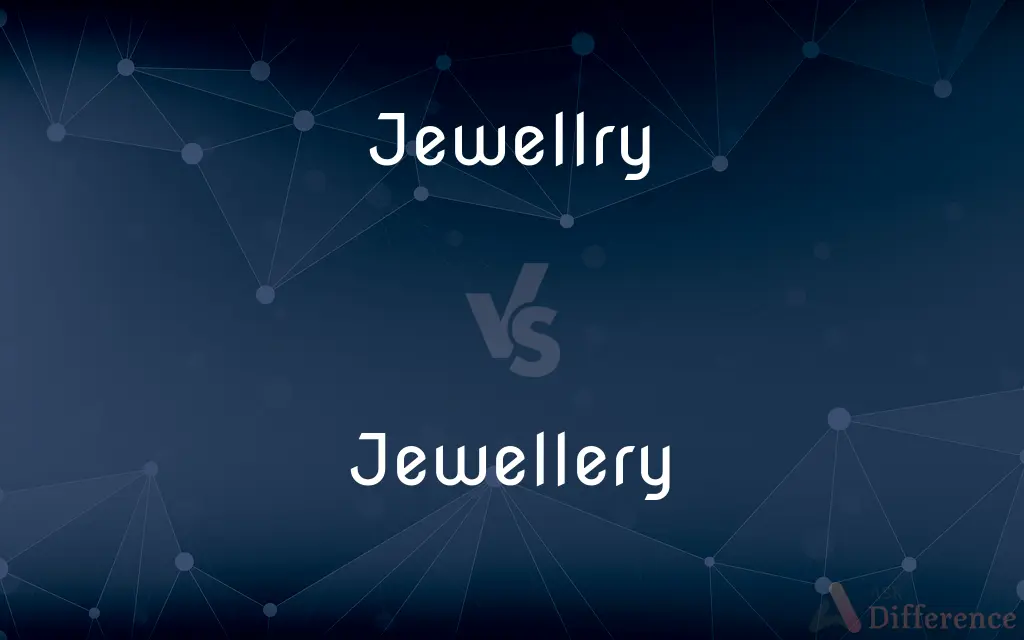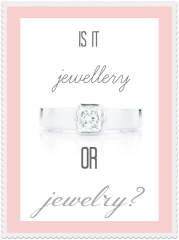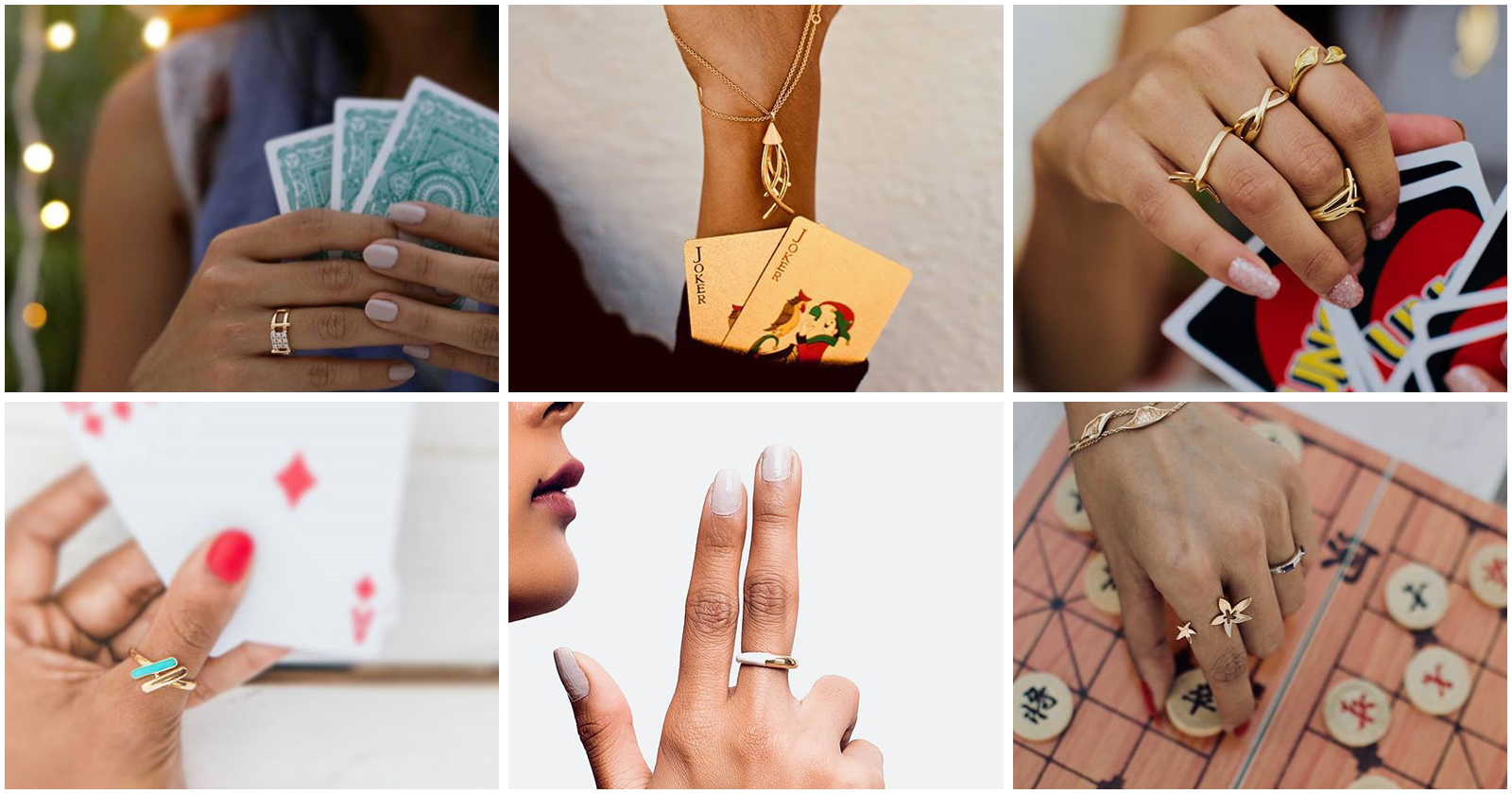The Jewelry/Jewellery Debate: A Comprehensive Guide to Spelling and Usage
Related Articles: The Jewelry/Jewellery Debate: A Comprehensive Guide to Spelling and Usage
Introduction
With enthusiasm, let’s navigate through the intriguing topic related to The Jewelry/Jewellery Debate: A Comprehensive Guide to Spelling and Usage. Let’s weave interesting information and offer fresh perspectives to the readers.
Table of Content
The Jewelry/Jewellery Debate: A Comprehensive Guide to Spelling and Usage

The seemingly simple question of whether to spell it "jewelry" or "jewellery" has sparked countless debates, leaving many wondering which spelling is correct. While both are widely used, the answer lies in the nuances of language evolution and regional preferences. This comprehensive guide explores the history, usage, and considerations surrounding these spellings, providing a clear understanding of their respective roles in the English language.
A Journey Through Time: The Evolution of Spelling
The evolution of "jewelry" and "jewellery" is rooted in the historical development of the English language. The word itself originates from the Old French "jouel," meaning "jewel." Over time, the French spelling "jouel" transformed into the Middle English "jewel," and eventually, the modern English "jewel."
The spelling "jewelry" emerged as a distinct form in the 16th century, likely influenced by the growing popularity of the "-ry" suffix in words denoting collections or groups. This suffix was commonly used in words like "bakery," "fishery," and "treasury," indicating a place or activity related to the root word.
The spelling "jewellery" emerged later, primarily in British English, and became the preferred spelling in many Commonwealth countries. This spelling, while less common in American English, is considered grammatically correct and widely accepted in its respective regions.
Regional Variations: A Tale of Two Spelling Preferences
The primary difference between "jewelry" and "jewellery" lies in their geographical usage. American English predominantly uses "jewelry," while British English, along with many other Commonwealth countries, favors "jewellery." This distinction reflects the historical and cultural influences that have shaped the evolution of English in different regions.
While both spellings are considered correct within their respective contexts, it is important to note that using one spelling over the other can affect the perceived formality and professionalism of written communication. In general, using "jewelry" is considered more formal and widely accepted in international contexts.
Navigating the Spelling Choice: Considerations for Effective Communication
When choosing between "jewelry" and "jewellery," several factors come into play:
- Target Audience: Consider the primary audience for your communication. If you are writing for an American audience, "jewelry" is the preferred spelling. For a British or Commonwealth audience, "jewellery" is more appropriate.
- Context: The specific context of your writing can also influence your choice. In formal writing, such as academic articles or business correspondence, adhering to the standard spelling for your target audience is generally recommended. In informal settings, such as social media or personal emails, the choice may be less strict.
- Consistency: Regardless of your choice, maintain consistency throughout your writing. Switching between spellings can appear unprofessional and confusing to your readers.
Beyond Spelling: The Significance of Jewelry
While the spelling debate may seem trivial, the significance of jewelry itself extends far beyond mere aesthetics. Throughout history, jewelry has played a multifaceted role in human society, encompassing:
- Symbolic Representation: Jewelry has been used to symbolize status, power, wealth, and religious beliefs. From ancient Egyptian hieroglyphs to modern engagement rings, jewelry carries profound meaning and cultural significance.
- Personal Expression: Jewelry allows individuals to express their unique personality, style, and values. From delicate necklaces to bold earrings, jewelry serves as a form of self-expression and personal adornment.
- Artistic Craft: Jewelry creation is a form of art, requiring skill, craftsmanship, and creativity. From intricate goldwork to contemporary designs, jewelry embodies the artistry and ingenuity of its creators.
- Investment Value: Precious metals and gemstones used in jewelry can hold significant investment value. Antique and vintage jewelry often appreciates over time, becoming valuable collectibles.
FAQs: Addressing Common Questions about Jewelry and Jewellery
Q: Is it ever acceptable to use both spellings in the same document?
A: While both spellings are considered grammatically correct, it is generally recommended to use only one spelling within a single document to maintain consistency and avoid confusion.
Q: Are there any specific instances where one spelling is preferred over the other?
A: In formal writing, such as academic articles or business correspondence, it is generally recommended to use the spelling that aligns with the primary audience. For American audiences, "jewelry" is preferred, while for British or Commonwealth audiences, "jewellery" is more appropriate.
Q: What about online platforms and social media?
A: Online platforms and social media tend to be more relaxed in terms of spelling. However, maintaining consistency within your own content is still recommended for clarity and professionalism.
Q: Does the spelling of "jewelry" affect the pronunciation?
A: No, the pronunciation of "jewelry" and "jewellery" remains the same, regardless of the spelling.
Tips for Effective Use of "Jewelry" and "Jewellery"
- Research your audience: Before writing, consider the target audience and their preferred spelling.
- Use a style guide: Refer to a reputable style guide, such as the Chicago Manual of Style or the Associated Press Stylebook, for guidance on spelling preferences.
- Be consistent: Maintain consistent spelling throughout your writing to avoid confusion and maintain professionalism.
- Use a spell checker: While spell checkers can be helpful, they may not always catch spelling variations. Double-check your work for consistency.
Conclusion: Embracing the Nuances of Language
The "jewelry" vs. "jewellery" debate highlights the dynamic nature of language and its evolution across different regions. While both spellings are considered correct, understanding their historical context and regional preferences is crucial for effective communication. By considering your audience, context, and consistency, you can navigate this spelling choice with confidence and professionalism, ensuring your writing is clear, engaging, and appropriate for your intended readers. Ultimately, the choice of spelling is a matter of preference and context, reflecting the diverse and evolving nature of the English language.








Closure
Thus, we hope this article has provided valuable insights into The Jewelry/Jewellery Debate: A Comprehensive Guide to Spelling and Usage. We hope you find this article informative and beneficial. See you in our next article!